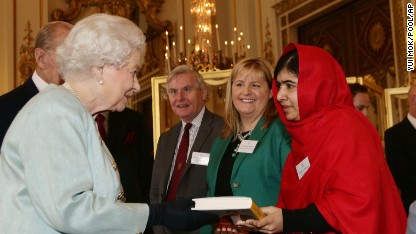
London (CNN) -- Pakistani girls' education campaigner Malala Yousafzai, who has found international fame since being shot by Taliban militants last year, met with another icon Friday: Britain's Queen Elizabeth II.
The Queen and her husband, Prince Philip, invited the young activist to a reception at Buckingham Palace, where they met and chatted for a short time.
Malala, who was accompanied by her father, Ziauddin Yousafzai, presented the Queen with a copy of her newly published memoir, titled "I am Malala."
"It's nice to meet you and it's a great honor coming here, and I wanted to present you my book," Malala said.
Queen Elizabeth responded, "That's very kind of you. Thank you very much indeed."
Malala said she hoped the two could work together to make sure all children receive an education, not just in Pakistan, but in the United Kingdom, too.

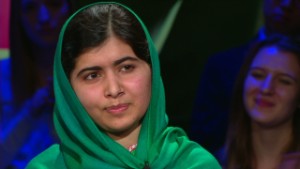
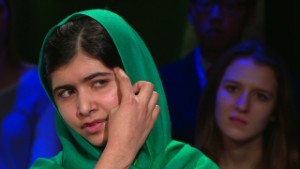
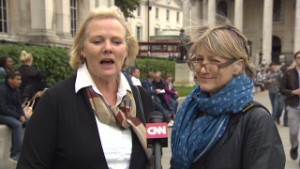
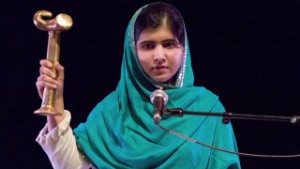
"I hope that we will all work together for the education of every child, and especially in this country as well, because I have heard about many children that cannot go to school," she said. "So I hope that we will continue our work on youth empowerment."
In his inimitable fashion, the Queen's husband, Prince Philip, made a joke about children and education when meeting Malala at the palace.
"It's one thing about children going to school," he said, "they go to school because their parents don't want them in the house."
In an interview with CNN last week, Malala joked that she was going "because it's the order of the Queen, it's the command."
Malala has been based in Britain since she was rushed there for major surgery after the Taliban shot her in the head in her native Pakistan because of her efforts to promote girls' education.
It's been a busy few days for the 16-year-old.
Last Friday, as the world marked the International Day of the Girl, she met U.S. President Barack Obama and first lady Michelle Obama at the White House.
Undaunted by the occasion, she challenged the President over U.S. drone strikes in her homeland, saying that they risk "fueling terrorism" and that U.S. efforts would be better focused on promoting education, according to a statement she released. The U.S. government has said strikes by the unmanned aircraft are a necessary part of the fight against militant groups, including the Taliban.
A day earlier, Malala won the Sakharov Prize for Freedom of Thought, awarded by the European Parliament.
Parliament President Martin Schulz called her a "brave advocate for education" who "reminds us of our duty toward children and especially girls."
Malala's memoir, which recounts her experiences after she was shot and her determination not to be intimidated by extremists, was released October 8.
There had been speculation that she might also be awarded the Nobel Peace Prize last Friday, but it went instead to the world's chemical weapons watchdog.
Why Malala's bravery inspires us
Malala's activism started after the Taliban banned girls from schools in Pakistan's Swat Valley in 2009. She anonymously blogged for the BBC in opposition to that order and became an open advocate for girls' education.
In 2011, Malala told CNN, "I have the right of education. I have the right to play. I have the right to sing. I have the right to talk."
A year later, at age 15, she was riding the bus home from school when a Taliban gunman climbed aboard and shot her in the head. She nearly died.
Since then, Malala has recovered and continued advocating for girls' education, despite ongoing death threats from the Taliban.
No comments:
Post a Comment